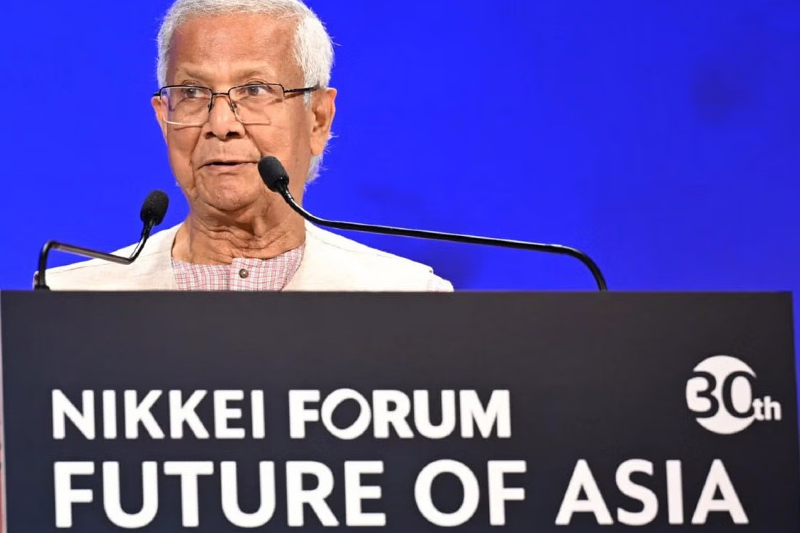
At the 30th Nikkei Forum held in Tokyo, Bangladesh's Chief Adviser Professor Muhammad Yunus stated that it is not all political parties in the country but only one particular party that is insisting on holding the general elections in December this year.
During the third day of the forum on Thursday (May 29), he addressed both national and regional issues, emphasizing the transitional government's commitment to reform, justice, and the facilitation of credible elections.
Professor Yunus clarified that he holds no political ambitions and reiterated that the core mission of the interim administration is to ensure a peaceful handover of power to an elected government.
He stressed that preparations are underway for a fair, inclusive, and transparent election that would uphold justice, equality, freedom, and dignity for all citizens.
He explained that the possibility of holding elections in December depends largely on the progress of the necessary reforms.
The government, according to him, is determined to hold elections within the December to June timeframe.
However, he indicated that rushing the reform process to meet a December deadline may compromise the quality of change needed, and therefore an extension of six months beyond December could better serve the country's interests.
Highlighting the legitimacy and objectives of the current administration, he said the government came into office through a difficult and complex process, and its top priority remains fulfilling the aspirations of the Bangladeshi people.
Professor Yunus also drew attention to Bangladesh’s humanitarian role in managing the Rohingya refugee crisis and its active participation in UN peacekeeping missions as reflections of the country’s global responsibility.
On broader Asian issues, he urged for regional peace, trust, and inclusivity in an increasingly volatile context.
He remarked that the future of Asia should not be judged merely by GDP figures but by the well-being, confidence, and courage of its people.
Yunus presented a set of seven strategic proposals aimed at fostering unity and collective progress.
He stressed the need for enhanced economic and technological collaboration, calling on regional development banks and financial institutions to play a leading role in funding Asia’s developmental needs.
Despite its potential, Asia remains one of the least integrated regions in terms of trade. Yunus urged for immediate action to strengthen intra-regional trade ties and develop a robust, inclusive, and sustainable technology ecosystem.
He advocated for a system that supports social equity and environmental responsibility, arguing that structural poverty stems from systemic flaws rather than individual failings. A shift is needed from outdated economic assumptions to a model that emphasizes inclusion and empowerment.
Yunus encouraged investment not only in infrastructure but also in human capital—through healthcare, education, digital access, and social enterprises.
He championed the idea of social businesses that balance profit with purpose, particularly in areas where markets and governments are unable to meet people’s needs.
On climate issues, Yunus recognized Asia’s dual role as both a victim and contributor to global warming.
He proposed a Pan-Asian Green Transition, urging support for grassroots-led initiatives in renewable energy, sustainable agriculture, and circular economies.
Youth empowerment featured prominently in his vision for the future. With half of Asia’s population under 30, Yunus stressed that young people should be equipped and empowered to become job creators through digital innovation, microfinance, and social enterprise.
He concluded by asserting the importance of grassroots leadership and moral direction in navigating a turbulent global landscape.
Yunus called for a paradigm shift—from systems that concentrate wealth and power to those that distribute opportunity and promote collective well-being.
Drawing from Bangladesh’s experience with social business, he reaffirmed the transformative power of dignity, trust, and opportunity in uplifting communities and driving change.



